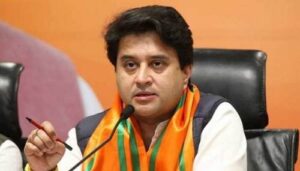Embrace the concept of virtual place of business for efficient e-commerce oversight: Experts
New Delhi, December 18, 2023: The Federation of Indian Small and Medium Enterprises (FISME), hosted a roundtable session to deliberate on the challenges faced by MSMEs within the e-commerce sector under the current GST regime and put forth recommendations to promote ease of doing business. The event witnessed participation by key stakeholders, including ‘Friends of MSME’ in Parliament (a group of members of Parliament across parties), tax experts, MSME industry associations, and online sellers.
Addressing the gathering, Shri Rajendra Agrawal, Hon’ble MP (Meerut), said,“The objective of this dialogue is clear: to resolve the challenges faced by MSMEs, who are integral to our economy. Any issues discussed, including the hurdles encountered by MSME sellers, will be shared with the relevant ministry and officials for resolution. The PM’s vision of Atmanirbhar Bharat cannot be achieved without the support of the MSME sector. We urge MSMEs to present their case, enabling us to advocate on their behalf in the Parliament and prompt the government to consider and address their concerns.”
During the roundtable, sellers underscored the ongoing challenges posed by the burdensome GST requirements, notably the obligation to secure Principal Place of Business (PPOB) registrations in every state of operation. This necessitates the need for physical offices, incurring working capital block and personnel costs. Updating GST certificates for additional premises creates complexity as there is a 2-4 week long waiting period for Additional Place of Business (APOB) registration, causing losses during sales. Additionally, the mandatory physical invoice in the digital age and the 1% TCS monitoring mechanism lead to working capital inefficiencies for e-commerce sellers.
Mr. Anil Bhardwaj, Secretary General, FISME, said,“It is astonishing that while PM Narendra Modi is giving a lot of push and encouragement to digital and e-commerce trade to connect small entrepreneurs and artisans to wider markets through e-commerce, they encounter huge difficulties in complying with GST provisions. They are required to obtain multiple registrations in states where goods are stored, are asked to create a full set-up and wait for months for adding new places. Tax processes, harassment and intimidation by state tax authorities are pulling the clock back for ease of doing business.”
Addressing their concerns, Ms. Mamatha Anand, Partner – Indirect Taxes, Deloitte, highlighted, “MSMEs are an essential part of the Indian economy as they contribute 30% to the GDP of the nation. The commitment of the government to increase this contribution to 50% in the coming year is commendable. Apart from government subsidies, quick loan approvals, lower electricity costs, and accessibility to MSME clusters, from a GST standpoint, the compensation scheme that allows MSME players to opt for fixed rates rather than the regular GST mechanism is beneficial.” She also added, “There is a need to relook across sectors to identify areas of improvement for MSMEs. Measures to ease registration hassles, improve working capital blockages, rationalization of rates are some of the key areas that warrant attention.”
Key recommendations tabled during the session include:
- Adopting a single home state PPOB model in GST regulations will enhance operational flexibility for sellers, streamline MSMEs’ expansion through e-commerce, safeguard state GST revenue, and maintain transparent audit trails.
- Permitting digital B2C transaction invoices will aid MSMEs in cost reduction and contribute to minimizing carbon footprint.
- An API-based APOB registration system by e-commerce operators for each seller’s GSTIN at warehouses will help reduce time required for inventory placement and eliminate repeated verification for the same premises.
- Reducing the TCS rate to 0.1% cumulatively will resolve the working capital issue for sellers and help maintain continued visibility.
- Ensure automation of the cash balance refund within T+3/5 days of filing of the application.
- Issue circular explaining the business model of the e-commerce seller.
- Provide comprehensive training to tax officers, equipping them with a nuanced understanding of the new-age e-commerce business model.
The dialogue also witness participation by esteemed guests such as Jagdambika Pal, Hon’ble MP(Dumariya Ganj), Pradeep Kumar Chaudhary, Hon’ble MP (Kairana), Dilip Saika Hon’ble MP (Mangaldoi), Ramesh Chander Kaushik, Hon’ble MP (Sonipat), Subhash Chand Baheria, Hon’ble MP (Bhilwari), and Sankar Lalwani, Hon’ble MP (Indore).


